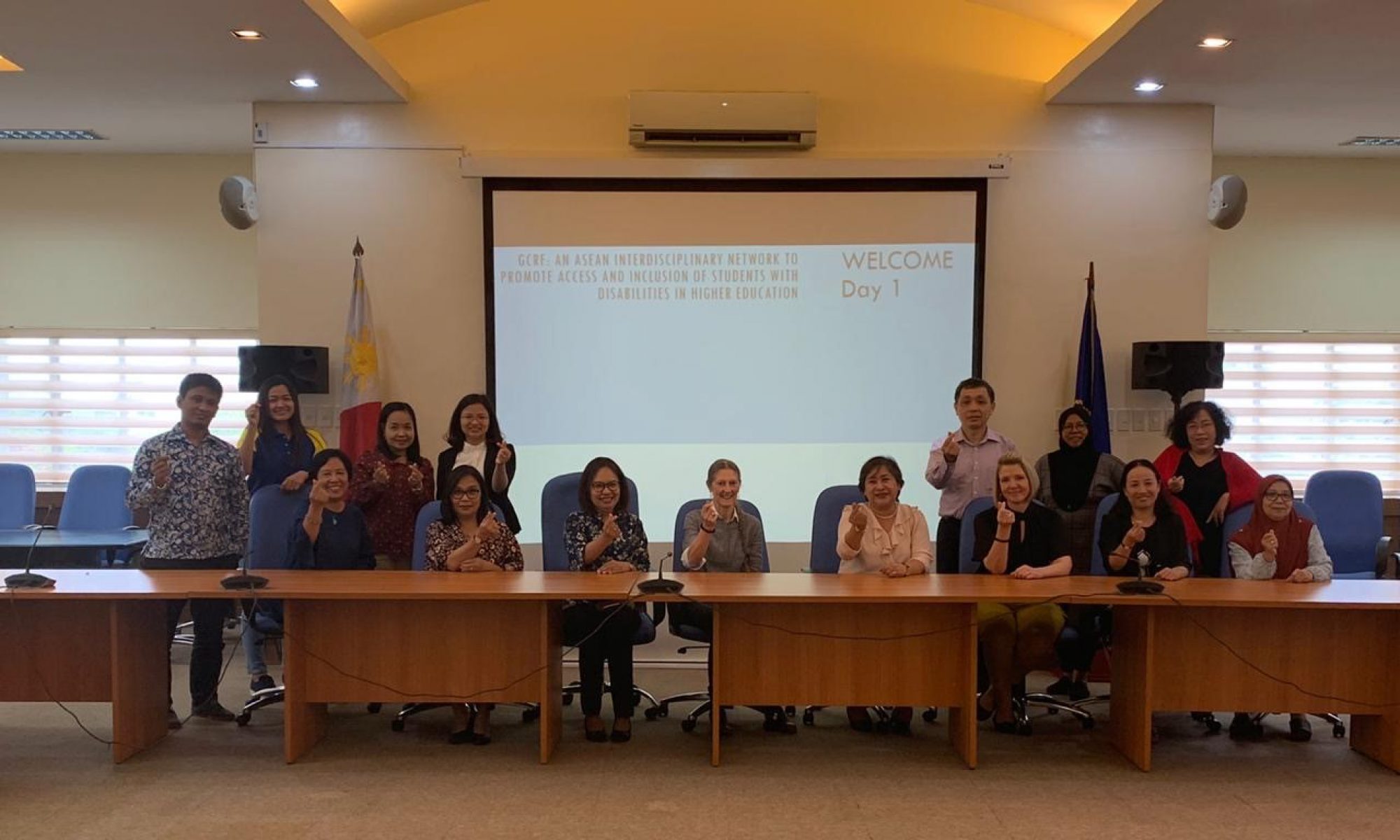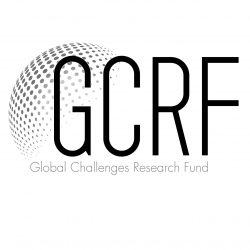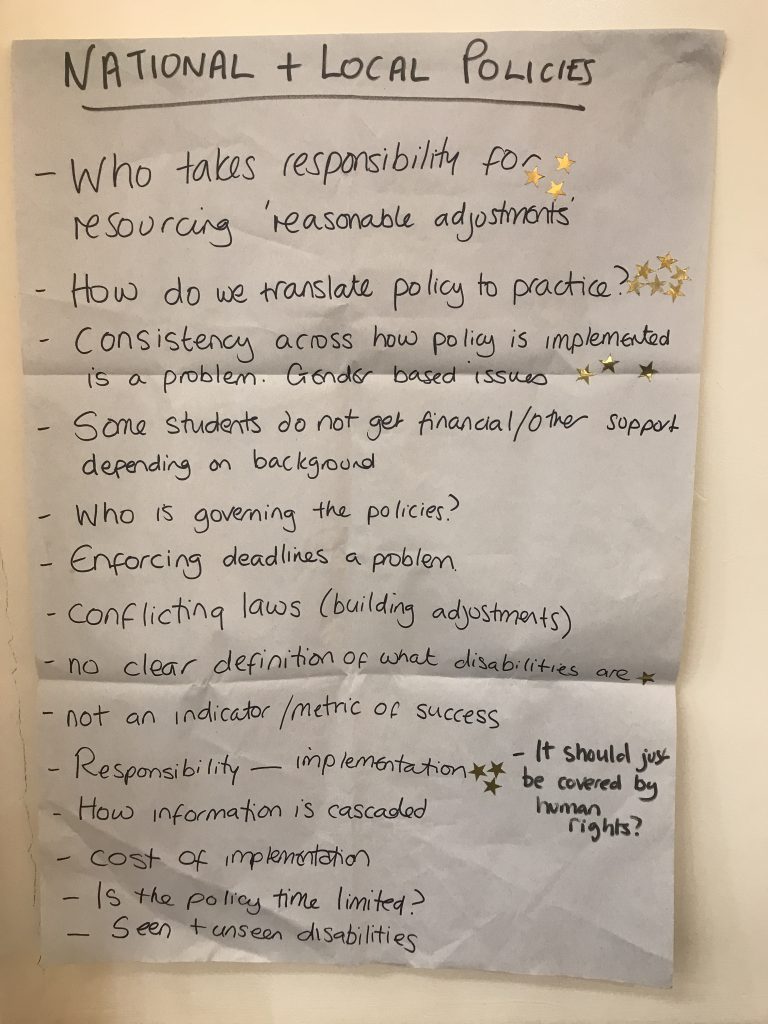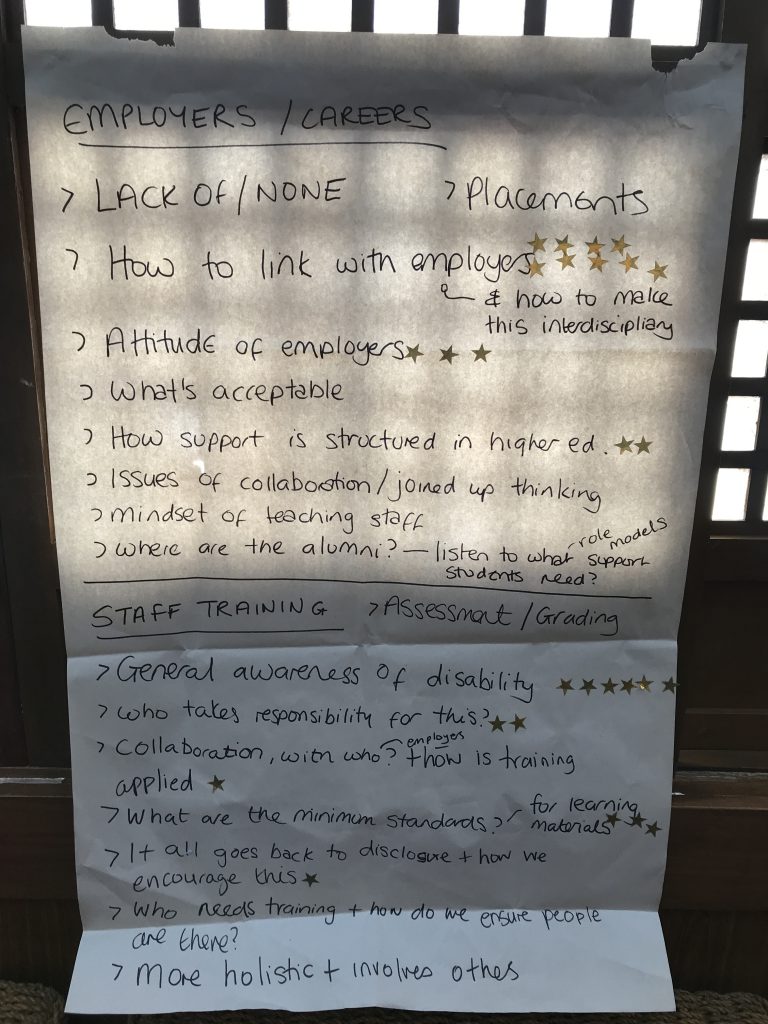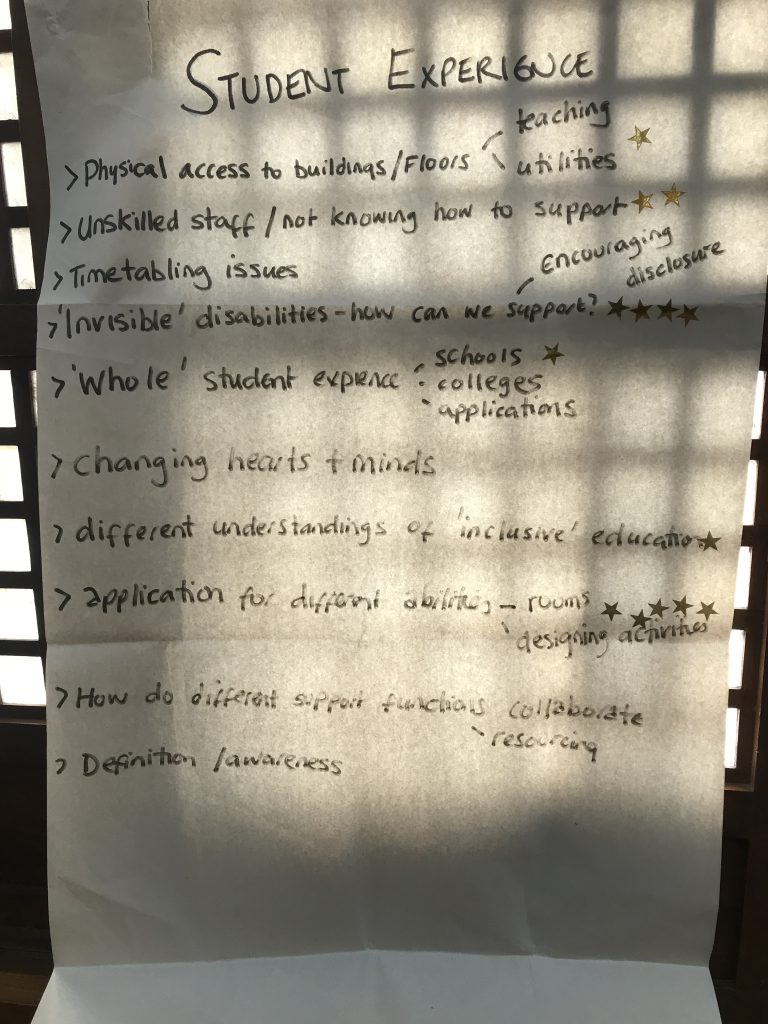On Friday 6th December 2019, Lynn Clouder and Marie Sams started the long journey to Manila in the Philippines to meet colleagues from the network for the first time.
The programme had been scheduled, cases packed, accommodation booked and we were excited to be starting the project alongside our co-investigator Prof. Zeny Reyes at Philippine Normal University, who were hosting the first meeting at their University building.
On the first day of our three day meeting, introductions were made and we participated in ice breakers in order to find out a bit more about each other, what our interests were and what we hoped to get out of the network. We also discussed potential names for the network (later decided on as ALIGN: Access and inclusion for students with disabilities in higher education network).
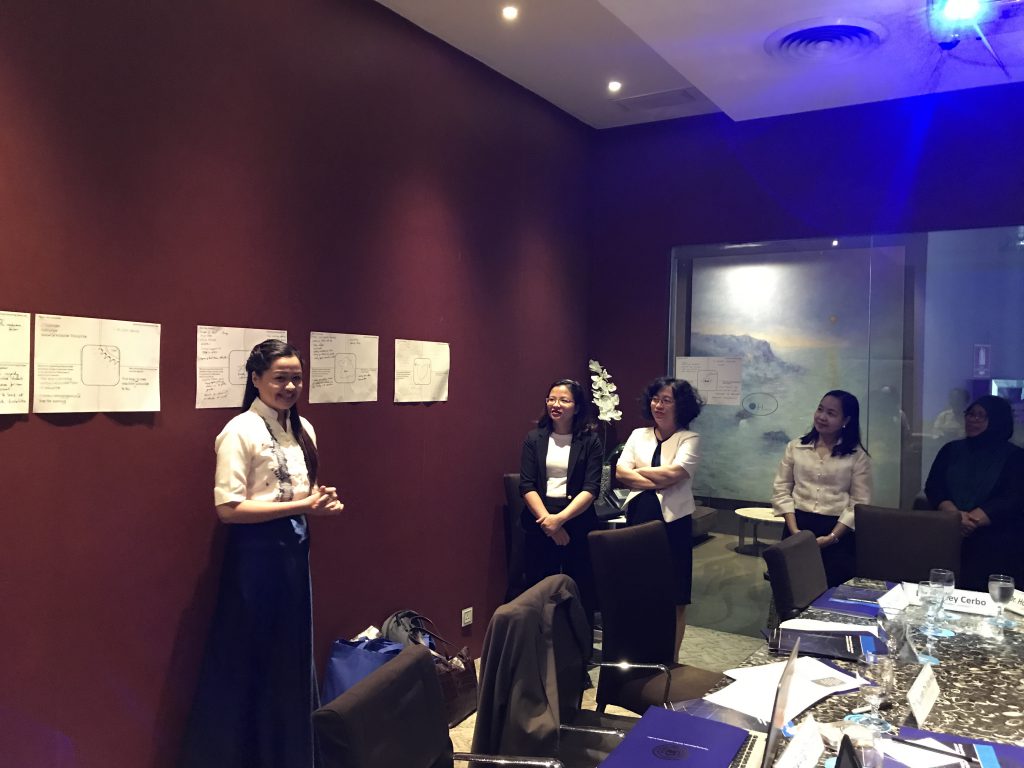
Icebreaker games 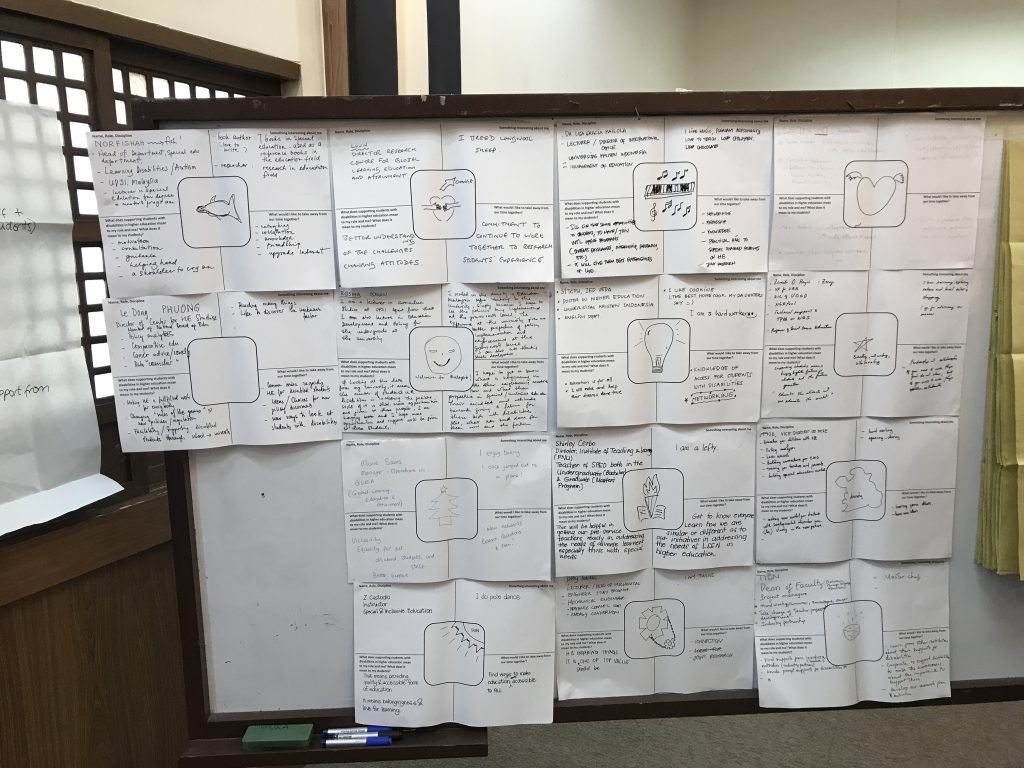
Capturing our interests
During the course of the day, each University partner shared some of their current institutional practice in the area of inclusive education, and some of the challenges faced by disabled students, their carers, families and teachers.
On day 2, partners were introduced to the concept of Appreciate Inquiry, which is a tool often used to create change. ‘AI was developed to reveal, often overlooked, positive aspects of experience; to generate new theory and to anticipate a new reality‘ (see Clouder & King 2015).
Lynn and Marie delivered a live demonstration of Appreciate Inquiry, so that each institution may go back to their respective departments to run the event in order to collect data on positive thought and perceptions on the possibilities of inclusive education for disabled students. The importance of including students in these conversations was always at the centre of every discussion, and each partner left with a plan for how they would approach this activity and feedback to the wider group.
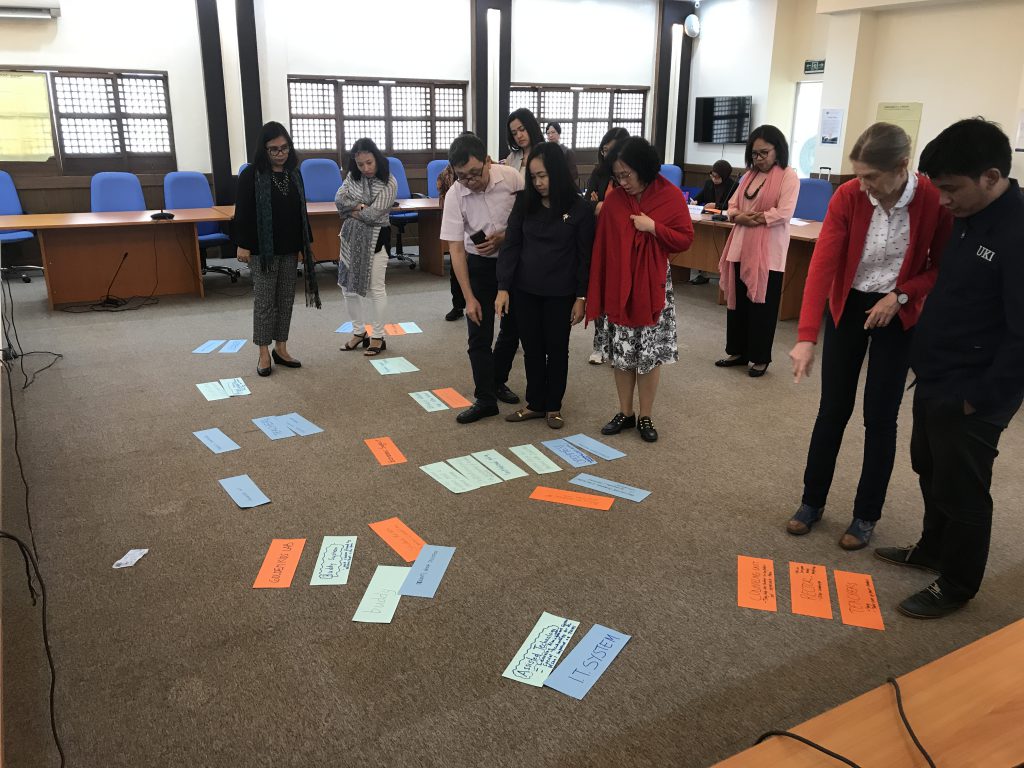
Appreciative Inquiry Event
On the final day of the visit, each partner fed back their plans of what their ambitions were for their own Universities, considering who they would invite to the event. To get a holistic view of what possible, it was agreed that the key stakeholders would include:
- Senior managers
- Teachers/educators
- Students
- Professional staff (i.e. Disabilities, course administrators etc).
- Parents and/or carers
In addition to the data that everyone was planning to collect, it was agreed that each institution would develop a ‘case study’ view of what was already happening in their institutions so that best practice can be shared and collective gaps identified.
Each partner also agreed to undertake some desk based research on disciplinary differences. A range of disciplines were identified and research would focus on the learning outcome of those courses, to look at how inclusive they would be to students with disabilities and whether any adaptations could be made.
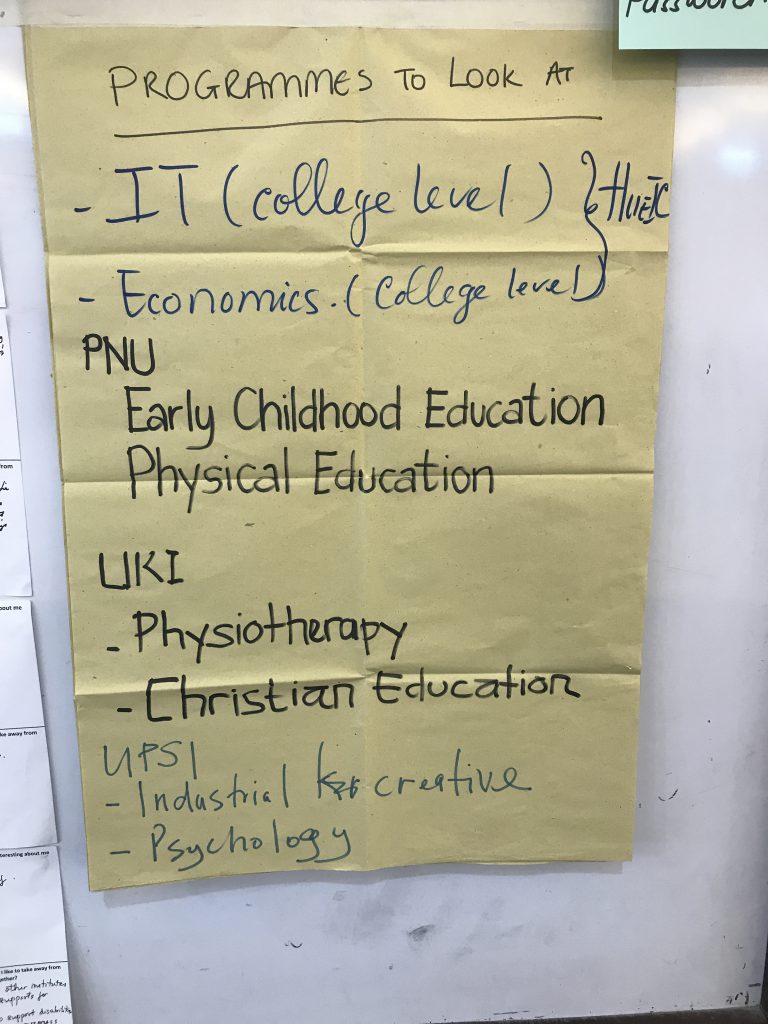
Disciplines being considered
The event finished with a finalised action plan and a round of appreciation for each of the partners involved. There was certainly a lot packed into the three days, and whilst everyone was in need of a well earned break, there was also a sense of enthusiasm and eagerness to start collecting data through desk research and AI events!
